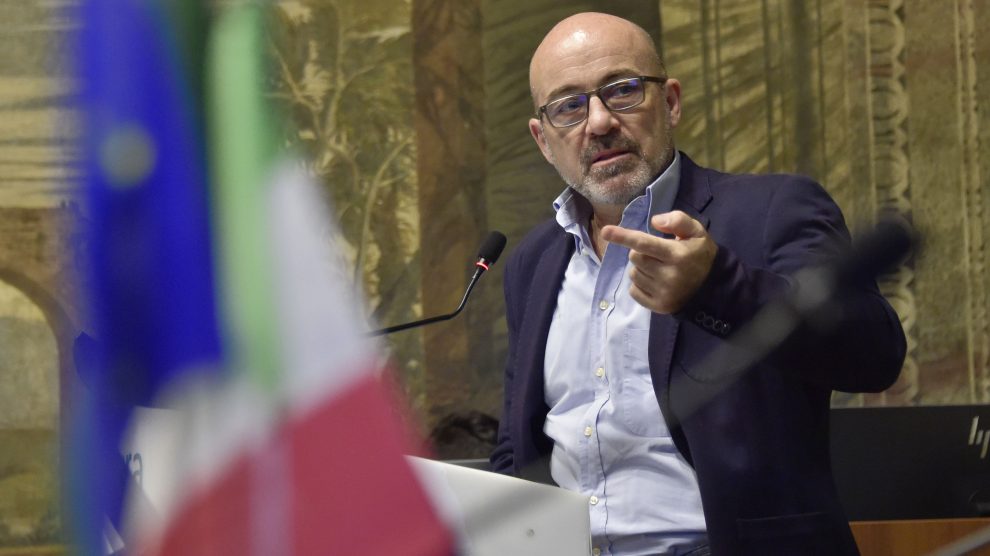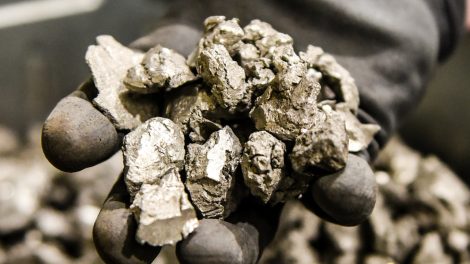The European Union is not off to a good start of the year regarding energy. Prices are high and are projected to stay that way, and member States have been bickering over the green labelling of investments (the so-called taxonomy) and the structural issues in the Green Deal’s underbelly.
There are differences between the capitals’ responses to these matters, which will influence decades and impact the bloc’s chances to decarbonise. And although Italy has been somewhat silent on the European stage, its unique positioning on the energy market, its energy mix and leading procurement system carry weight in the EU.
Here’s why it’s worth taking a look at Rome and its energy policies. First, though, some context – feel free to skip ahead if you’ve been following the developments of the EU’s energy crunch and its taxonomy debate.
The EU’s energy crunch, explained
The energy crunch has been one of the main drivers of concern in 2021’s EU, and the bloc’s hypersensitivity to the issue will not abate anytime soon. The 27 are at a juncture where several factors contribute to the increase in power prices. They range from the political, to the geopolitical, to the environmentalist, to market dynamics.
Most notably, energy prices have been sent into a frenzy by Russia’s use of natural gas as a geopolitical lever. Moscow is the source of over 40% of the EU’s methane and has been limiting supplies to pressure Berlin into approving a new gas duct, Nord Stream 2. The historically low gas reserves ignited the market’s fears, which were only partially appeased by the United States’ decision to send over shipments of liquefied natural gas (LNG).
The EU’s generalised Green Deal push and its carbon certificate trading market (ETF) also contributed to spiking the prices of coal and oil, which in turn became the go-to of several countries (like Germany) due to prohibitively high gas prices and subpar renewable energy production. This year’s cold winter was the icing on the cake, but energy prices have been steadily climbing throughout 2021 across the bloc.
Responses and the taxonomy
Prices are not expected to calm down until spring at least, but the more structural elements of this energy crunch – relating to the green shift – will remain. The EU-wide response has been muted: Bruxelles coughed up policy recommendations for single States and promised it would look into joint gas procurement. At the same time, it reiterated its faith in the long-term bet of renewables as a market stabiliser.
All of the above provides framing for the ongoing debate over the EU’s update to its taxonomy, which will tackle greenwashing and determine which investments contribute to the bloc’s decarbonisation process and are thus worthy of tax breaks and subsidies. In the last hours of 2021, the Commission published its long-awaited draft and made shockwaves with its (predictable) decision to include natural gas and nuclear projects.
Member states have until January 21 to submit their opinion. Several of them, along with green groups and experts, have voiced their opposition to gas and nuclear’s green labelling. However, the taxonomy will likely pass in its current form, as opposing it requires too big a majority in the European Parliament – and most understand both sources are needed for the transition period.
What about Italy, then?
As per the rest of Europe, power prices in the peninsula are not going swimmingly. Electricity bills are twice what they were in early 2021, and gas bills have increased three times – four to five, actually, when referring to 2019 prices. Family-led companies and SMEs have been bearing the brunt of this hike, with many businesses closing and many more pleading for help.
Prices are set to climb even more in 2022 regardless of the billions spent by the government to contain them. There’s a silver lining: energy prices are the only driving force behind the Italian inflation, which climbed 3,9% in 2021 – below most of the EU and the US – and would amount to a comfortable 1,4% without considering food and power.
Rome likes gas…
Natural gas constitutes the backbone of Italy’s current energy supply at 42%. It’s projected to reach 47% by 2026, according to S&P Global Ratings. Thanks to gas ducts pumping methane from MENA partner States, the country can count on a more diversified supply than other EU members.
Also, its strategic reserves (totalling 20 billion cubic metres, among the biggest in the bloc) are the fullest among major EU countries. They stand at 60%, whereas the European average is below 50% due to Russian reluctance.
Even if it’s relatively more comfortable, Italy is still exposed to the EU’s prices and member States’ energy policy. Thus, for Rome to oppose the labelling of gas – which comes with highly stringent emission criteria and a deadline – would be to shoot itself in the foot and enrage the likes of Germany, which will likewise depend on gas during the transition. In fact, Rome has supported the idea of joint European gas procurement and storage.
… it’s colder on nuclear…
Nuclear is a wholly different matter, as the country rejected it twice via referenda and lacks the political momentum to bring it back – despite the rekindling of a national discussion about the upcoming fourth-gen reactors and nuclear fusion.
Centre-left leaders have been voicing their opposition to its inclusion in the taxonomy, while centre-right politicians are more favourable, as they have always been, although their eyes are set on future iterations of the technology in line with the opinions of Roberto Cingolani, a physicist and current ecological transition minister.
Nevertheless, as Il Foglio reports, officials from the Ministry of the Economy have told angry centre-left MPs that opposing nuclear in the taxonomy would amount to “sticking a finger in the eye of France and another dozen countries”. Also, Italy imports 10% of its electricity from France – which produces 70% of its own through nuclear reactors.
… and will settle for realpolitik
The ministries must submit Rome’s comments on the taxonomy by Friday, January 21, and they are going to convey a neutral stance. It’s a matter of realism, really: the government knows the taxonomy will likely pass through the European Parliament as-is. Also, the Italian MPs will start voting for Italy’s next president on January 24, and given how polarising the energy issue is, it’s unlikely that the executive will want to ruffle too many feathers.
“We cannot but call ourselves neutral on the taxonomy,” as officials of the Ministry for the Ecological Transition have been telling MPs. Members of the government have been offering other hints: Vannia Gava, State Undersecretary for the Ecological Transition and member of the centre-right League, stated on Tuesday that renewables “are not enough. Including gas and nuclear energy among the [energy] sources of the transition is a balanced and necessary solution.”





